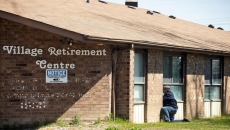The federal government is switching up its relief programs for unemployed Canadians after doling out $69.37 billion to 8.61 million people across the country whose jobs were impacted by COVID-19.
Here's a look at how the new programs will work:
What is happening to the Canada Emergency Response Benefit and Employment Insurance?
The government is extending the CERB by an additional four weeks, thus offering a maximum 28 weeks of benefits. After that maximum is reached the government will launch a "simplified" EI program and three new kinds of benefits on Sept. 27.
Those on CERB will be able to transition to EI if they qualify under new parameters.
How many hours do you have to work to qualify for the new EI?
Canadians will now qualify for EI after working as few as 120 insurable hours, the equivalent of about 3.5 weeks, in the last 52 weeks.
EI claimants will receive a one-time credit of about 300 insurable hours for claims, if they have lost their job, or 480 insurable hours, if they have taken leave for a sickness, pregnancy or parental, compassionate care or family caregiver reasons.
Those credits will be available for one year and retroactive to March 15 for claimants who wanted to switch from CERB to EI maternity, parental, compassionate care, family caregiver or work-sharing benefits, but were stopped because they did not meet the hourly requirements.
How much money will people receive?
New EI claimants will receive at least $400 per week or $240 per week for extended parental benefits, if this is higher than their benefits would otherwise be.
Previous EI claimants were given 55 per cent of their average weekly earnings, up to a maximum $573 per week in 2020.
What is happening to the EI premium rate?
The EI premium rate is being frozen for two years at $1.58 per $100 in insurable earnings for employees and $2.21 per $100 in insurable earnings for employers.
What if I'm self-employed or don't qualify for EI?
The first of the three new benefits is the Canada Recovery Benefit for workers who are self-employed or not EI-eligible and still require income support because their work has not yet returned due to COVID-19.
This benefit will provide $400 per week for up to 26 weeks, while claimants continue to look for work.
They will be able to earn income from employment or self-employment while receiving the benefit, but need to repay 50 cents of every dollar earned above an annual net income of $38,000 through their income tax return.
The benefit will be available Sept. 27 and paid in arrears.
What if I get sick or have to isolate for COVID-19?
The government will offer the new and temporary Canada Recovery Sickness Benefit to provide income support for workers that are sick or must self-isolate because of COVID-19.
The benefit will offer $500 per week for up to two weeks and cannot be received while claimants are also taking paid sick leave.
It is also available Sept. 27 and paid in arrears.
What if I have to look after kids or family member?
The government has announced the Canada Recovery Caregiving Benefit, a new and temporary program for workers who must miss work to care for a child under the age of 12, a family member or dependant because schools, daycares or day program facilities are closed due to COVID-19.
This benefit offers $500 per week for up to 26 weeks per household. It may be shared, but only one member of a household at any time can receive the benefit at a time.
Workers who prefer to keep dependents at home when facilities are open are not entitled to the benefit, which is effective Sept. 27 and paid in arrears too.





.jpg)
